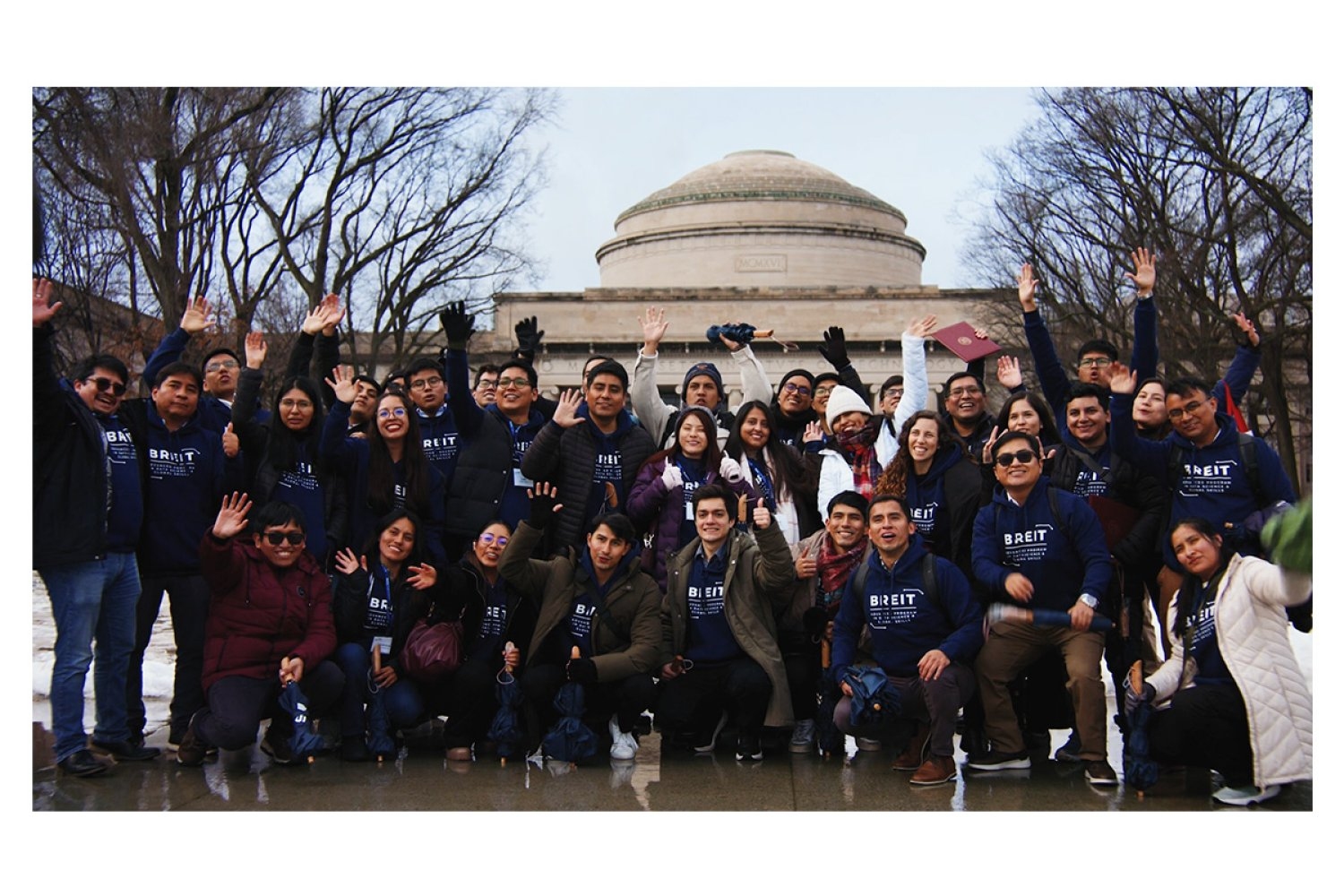The rise of artificial intelligence rearrides an older question: If we have a tool to do it, learn to do it yourself?
Answer, MIT Electrical Engineering and Professor of Computer Science (EEC) argues, not changed: foundation in mathematics is necessary to use the equipment well, knowing what tool to use to properly interpret the results.
“Large -language models Dells and Generative AI completes new application, these cutting edge tools will continue to reshape the entire fields of the industry, and bring new insights to challenges in research and policy,” Shah’s argument. “The world needs people who can capture the underlying concepts behind AI to gain its possibility.”
Shah is a professor in MIT’s Institute for Data, Systems and Society (IDSS), which is a cross-dislocation unit, which gives the global requirement of data skills with the Course Neline Course Ings furrings such as Micromaster Program in statistics and data science.
“Since more than a thousand credentials and thousands of learners are engaged in the world, the micromaster program of statistical fundamentals has proved a hard but flexible way for skilled learners,” says Shah, “said Shah,” says Shah.
Micromasters also create a backbone of the IDSS Education Partnership, where the embedded MIT team collaborates with organizations to support groups of learners through the micromaster course.
“With our first strategic partner in education, IDSS provides graduate-level data-level data education by Technology Fechnology (BRIT),” explains the Cristia, “Ford International Professor of MIT and Director of IDSS,,” Cristia. “Through this partnership, IDSS data is trained .It is training unanoons who are giving decision making in Peruvian industry, society and policy.”
Next Pay Generation Training
Advanced program of data science and global skills developed in collaboration with IDSS, provides training in both the technical and nontechnical skills needed to take advantage of the insights that can provide data. Learning the foundations of statistics, probability, data analysis and machine learning, members in Statistics and Data Science (SDS) completes micromasters. Meanwhile, these learners are equipped with a career skill from communications and critical thinking to team-building and morality.
“I knew that artificial intelligence, machine learning and data voice .I have the future, and I wanted to stay in that wave,” Brett Learner Renato Castro explains the decision to join his program. Now an credentials holder, Castro has developed data projects for groups in Panu, Panama and Guatemala. “The program teaches more than math. It is a systematic way to think that helps you affect real-world problems and creates wealth not only for the company, but also for the people.”
“The goal is to raise problems and leaders in the field that is growing and becoming more relevant to institutions around the world,” says Brett manager Lucia Haro. “We are training the upcoming pay general to contribute to the economic development of our country and for a positive social influence in Peru.”
To help fulfill this, IDSS provides Britain support support for learners. MIT grade student education assistants lead regular sessions to practice topics with class concepts, answer learning questions and to identify topics to develop additional resources.
“These sessions were very useful because you would see the theoretical part of the lectures,” says Jessis Figuro, who completed the program and now serves as a local education assistant. Learners like Figuroa must go beyond the understanding of the course content to support future learners.
Figuroa explains, “Maybe you already understand the fundamentals, theoretical part,” but you have to learn how to contact them. “
About 100 holders of Micromaster credentials – and for 90 more in the pipeline, eight groups have completed the program with three more progress. As Brit has increased their operation, the IDSS team worked to meet new needs, as they emerged, such as collaborating in the development of technical assessment to support Learner Recruitment.
“Assessment tool gauge familiarity with prerequisites such as calculus, elementary linear algebra, and basic programming in Python,” says Karen Ch., SDS Micromaster’s Assistant Director, Karen Ch. ” “With some randomization and automatic grading of questions, this quiz set the possibility of an up -of -date program in data expression and global skills for brit, while applicants also help to see where their skills need to be created.”
After implementing the assessment, the program continues to develop in several ways, such as the systematic response from MIT teaching assistants on data projects. This guidance, designed in multiple project phases, guarantees similar results for learners and project sponsors. The IDSS Micromaster Team has developed a new coding demo to help learn the learners with different applications and further deepen the principles behind them. Meanwhile, the Micromaster Program itself has expanded to respond to the demand for the industry, added a course to the analysis of the time series and created a special program track to customize their experience.
“Partner input helps us understand the landscape, so we get to know the demands and how to meet them,” says Susana Kevardova, program manager of IDSS Micromaster. “With Brit, we are now offering different background learners to offer a prerequisite ‘bootcamp’ to help them refresh or cover their Junowledge. We are always looking for ways to add value to our partners.”
Better decisions, big impact
To accelerate the development of data skills, Brett’s program provides opportunities to apply these skills to data projects. These projects are developed in collaboration with the local Nong Ovarmental Organization (NGO) operating on various social influence projects for the purpose of improving the quality of life for Peruvian citizens.
“I worked with NGOs to understand why students do not complete graduate studies,” says Diego Trugillo Chappa, a British Learner and Micromaster credentials. “We have developed an improved model for them, taking into account the features of their reading level and their income, and tried to remove the bias on where they come from.”
Trugillo adds, “Our method helped NGOs identify more potential applicants.” “And moving forward with better data analysis, it’s a good step for NGOs.”
Trugillo has now brought this data skills to bear the user’s experiences of its work modeling in the field of telecommunications. “We have some features that we want to improve in my country’s 5G network,” explains it. “This method helped me to understand a person’s variable properly in the equation of experience.”
Yajaira Huerta’s social influence project was particularly treated at serious issues and difficult times. He explains, “I worked with an organization that builds homes for homeless people.” “This was the time when Kovid -19 was spread, which was a difficult situation for many in Peru.”
One challenge was to identify what was the most most to make the distribution of resources to its project organization – a type of problem where data tools could have a big impact. “We have created a clustering model to capture the indicators available in the data, and also to show us with a geographical location where there were central issues,” says Huerta. “This helped the team make better decisions.”
Global Network and Pipelines
As part of the growing, global IDS community, IDSS workshops and conferences have been successful to the credentials of micromaster program in statistics and data science. With the cooperation of Brit with IDSS, there are more opportunities to communicate with the MIT faculty beyond recorded lectures to learners. Some Brett learners have also traveled to MIT, where they have met students and faculty of MIT and have learned about current research.
“I feel in love with this history you have, and what you are making with AI and Nano technology. I’m very motivated.” Huerta of his time on campus says.
During his recent visit in February, Brett learners personally obtained perfection certificates, visited MIT campus, joined interactive negotiations with students and faculty, and acquired a new micromaster development: Mechanical Engineering Professor Annate “Paco”.
“Brett and their extraordinary talented learners bring a full circle of all our spouse’s efforts, especially micromaster credentials are a potential recruitment pool for our CAMP-campus graduate programs,” says Brett and their extraordinary talented learners. “This partnership is a model we are willing to create and repeat, so we are developing the same network and data expressions on every part of the world .This talent pipelines.”




